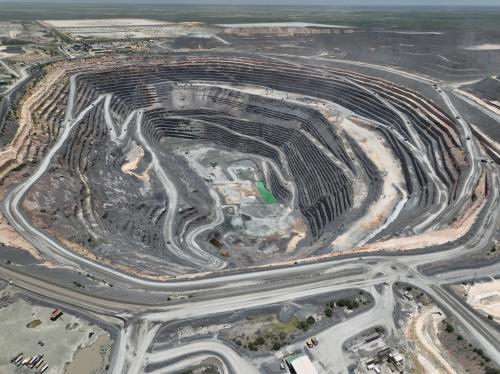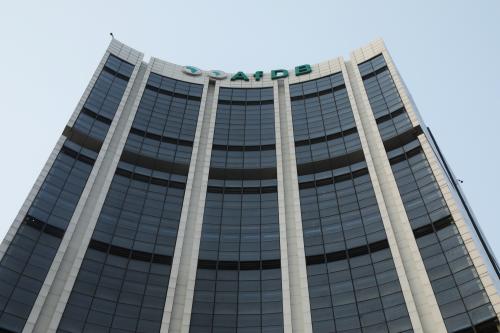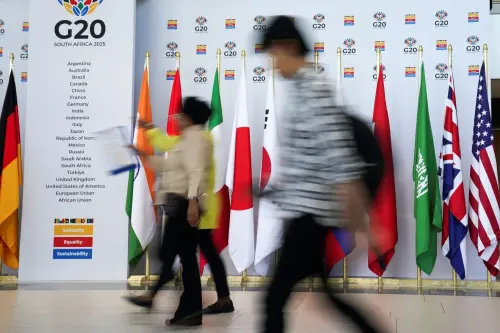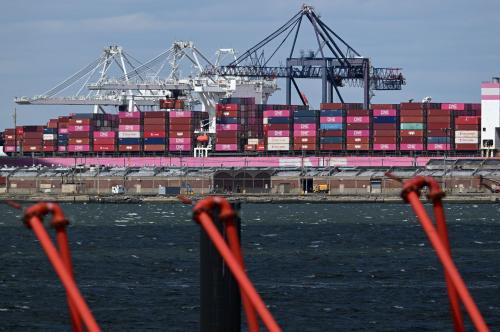This viewpoint is part of Chapter 1 of Foresight Africa 2025-2030, a report with cutting-edge insights and actionable strategies for Africa’s inclusive and sustainable development in the run-up to 2030. Read the full chapter on Africa’s inner strength.
To claim that the future belongs to Africa is a reality backed by every socioeconomic indicator. But to turn this potential into progress, Africa must strategically position itself to seize the moment.
By 2030, one-fifth of the world’s population will live in Africa, with the majority being young people.1 The continent’s mineral wealth remains largely untapped,2 its arable land can feed the world, and most importantly, Africa is largely peaceful today.
To claim that the future belongs to Africa is a reality backed by every socioeconomic indicator. But to turn this potential into progress, Africa must strategically position itself to seize the moment.
The good news is we are making strides. The realization that Africa’s socioeconomic transformation lies in the hands of its people is now widespread. No one else will do it for us. Attempts to develop the continent without ownership and leadership by Africans have not fared well.3 We understand our challenges and aspirations better than anyone.
Recent crises—such as the COVID-19 pandemic, the Russia-Ukraine war, and internal political weaknesses—have exposed vulnerabilities, including trade imbalances, skyrocketing inflation, and slowed growth.4 However, these challenges have also provided valuable lessons.
For instance, the inequitable distribution of COVID-19 vaccines highlighted the urgent need to invest in local vaccine manufacturing.5 Rwanda, in partnership with BioNTech, is playing its part by establishing a cutting-edge mRNA-enabled vaccine manufacturing plant, setting a precedent for the continent.6
To secure Africa’s future, Africa must seek solutions from within. The African Continental Free Trade Area (AfCFTA) is a testament to this unity, connecting 1.3 billion people across 54 countries with a combined GDP of over $3.4 trillion. With the political will for reform and steady implementation, the AfCFTA is set to be a game-changer for trade, investment, and economic integration across the continent.7
On the global stage, Africa has started to leverage its influence effectively. Whether it’s advocating for a unified position on climate action,8 reforming international financial systems,9 or amplifying our voices within global platforms,10 Africa is demonstrating that it can shape its destiny.
Rwanda’s journey offers valuable lessons. Our socioeconomic transformation is being driven by ownership—developing homegrown solutions rooted in our culture and tailored to our unique challenges.11 While partnerships are crucial, they are most productive when aligned with our vision and goals.
Yet, challenges remain. We need significant investment in productive sectors to create opportunities for our young population. Expanding energy access,12 building robust digital financial ecosystems,13 and navigating a fragmented global economic system are urgent priorities.14
With just five years left to achieve the Sustainable Development Goals, Africa must act decisively. In a world marked by weakening multilateralism, rising trade barriers, geopolitical tensions, and increasing climate disasters, Africa must strengthen its global positioning. Most importantly, we must resist being instrumentalized and keep the improved well-being of our people as the ultimate prize.
Africa’s moment is now. We are ready to collaborate and lead.
-
Footnotes
- Michael Geiger and Moulaye Ibrahim Bamba, “What Hong Kong and Singapore Can Teach Africa on How to Become an Economic Powerhouse,” World Economic Forum (blog), January 5, 2021, https://www.weforum.org/ stories/2021/01/hubs-africa-growth-potential-economics/.
- Louise Margolin, “DRC, South Africa, Botswana…Who Has the Greatest Potential in Critical Minerals?,” The Africa Report (blog), accessed December 3, 2024, https://www.theafricareport.com/333508/drc-south-africa-botswana-whohas-the-greatest-potential-in-critical-minerals/.
- Joaquin Matamis, “Africa’s Future: Rethinking Development Based on the African Experience.” Stimson Center (blog), September 1, 2023, https://www.stimson.org/2023/africas-future-rethinking-development-based-on-the-africanexperience/.
- Matamis, “Africa’s Future.”
- Harvey Mogojwe, “How Has the African Vaccine Manufacturing Landscape Changed in the Last Year?,” Clinton Health Access Initiative (blog), October 18, 2024, https://www.clintonhealthaccess.org/report/how-has-the-african-vaccinemanufacturing-landscape-changed-in-the-last-year/.
- BioNTech, “BioNTech Achieves Milestone at mRNA-Based Vaccine Manufacturing Site in Rwanda,” December 18, 2023, https://investors.biontech.de/news-releases/news-release-details/biontech-achieves-milestone-mrna-basedvaccine-manufacturing-0#:~:text=KIGALI%2C%20Rwanda%2C%20December%2018%2C,Company’s%20site%20in%20 Kigali%2C%20Rwanda.
- “About the AfCFTA,” AfCFTA, accessed December 3, 2024, https://au-afcfta.org/about/.
- Inger Andersen, “African Climate Leadership at COP29 and Beyond,” https://www.unep.org/news-and-stories/speech/ african-climate-leadership-cop29-and-beyond.
- “Finance and Foreign Ministers Call for Remaking the International Financial System in the Interest of Developing Countries,” United Nations, July 26, 2024, https://www.un.org/en/finance-and-foreign-ministers-call-for-remaking-theinternational-financial-system.
- Ovigwe Eguegu, Hannah Ryder, and Trevor Lwere, “Africa’s Design for a Reformed UN Security Council,” Center for Strategic and International Studies, October 1, 2024, https://www.csis.org/analysis/africas-design-reformed-unsecurity-council.
- “Home Grown Solutions,” Rwanda Governance Board, accessed December 3, 2024, https://www.rgb.rw/1/homegrown-solutions.
- “Energizing Rwanda’s Development,” Sustainable Energy for All, September 10, 2024, https://www.seforall.org/ publications/energizing-rwandas-development; “Increasing Energy Investment in Africa is Vital for the Continent’s Sustainable Economic Growth,” IEA, June 15, 2024, https://www.iea.org/news/increasing-energy-investment-in-africais-vital-for-the-continents-sustainable-economic-growth.
- Patient Rambe, “Digital Payments for Deepening Financial Inclusion and Democratising Financial Ecosystems in Africa,” in Blockchain, Metaverse, and Digital Payments (London: Routledge, 2024); Eric Gacuruzwa, “Rwanda’s Five-Year FinTech Strategy: Aiming to Lead Africa’s Digital Future,” FurtherAfrica (blog), November 29, 2024, https:// furtherafrica.com/2024/11/29/rwandas-five-year-fintech-strategy-aiming-to-lead-africas-digital-future/.
- Spencer Feingold, “Economic Fragmentation Rises with Global Tensions: Experts,” World Economic Forum (blog), June 26, 2024, https://www.weforum.org/stories/2024/06/economic-fragmentation-global-tensions-experts/.
The Brookings Institution is committed to quality, independence, and impact.
We are supported by a diverse array of funders. In line with our values and policies, each Brookings publication represents the sole views of its author(s).






Commentary
Africa’s moment: Seizing the opportunity for transformation
April 8, 2025